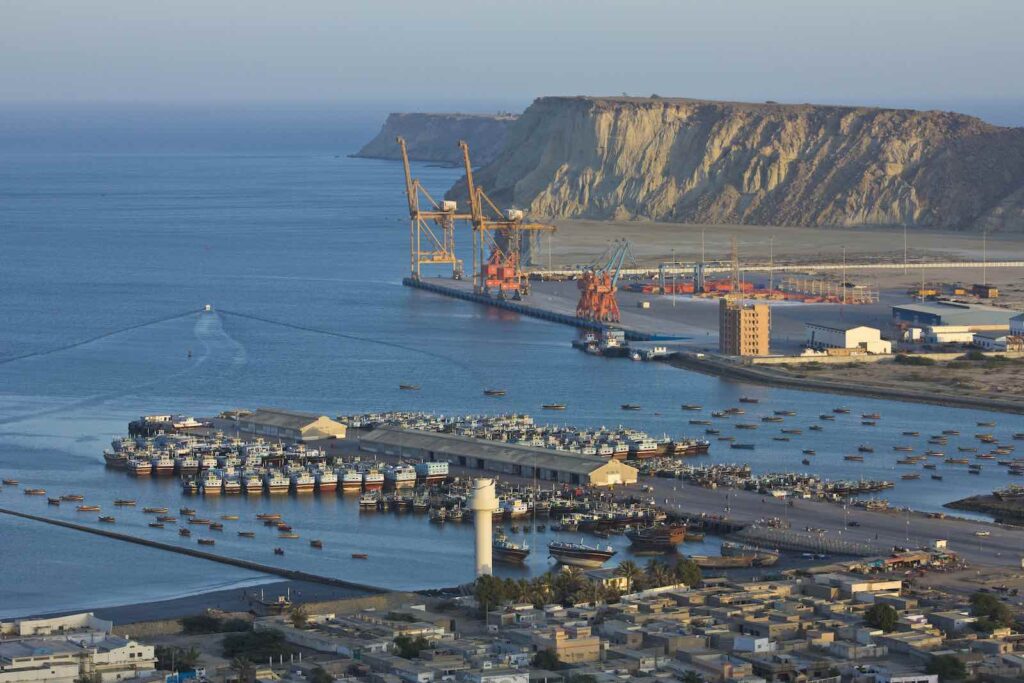- Web
- Feb 05, 2026
Government explores routing 60pc public sector imports via Gwadar Port
-

- Web Desk Karachi
- Dec 18, 2024

ISLAMABAD: The government is examining the feasibility and strategy to channel 60% of public sector imports, such as wheat, fertilizer, and sugar, through Gwadar Port.
This proposal was thoroughly discussed at a federal cabinet committee meeting led by Commerce Minister Jam Kamal, with participation from Maritime Affairs Minister Qaiser Ahmed Sheikh and senior officials from the ministries of commerce, maritime affairs, interior, and planning.
According to Dawn, an official announcement indicated that the committee, tasked with providing actionable recommendations to Prime Minister Shehbaz Sharif, evaluated the progress of current plans and strategized on enhancing Gwadar Port’s utilisation. It was decided that the committee would hold monthly meetings and present quarterly reports to the cabinet to ensure ongoing assessment of Gwadar’s potential as a significant trade hub. The committee emphasised the importance of using Gwadar Port for bulk imports like wheat, sugar, and urea.
Jam Kamal suggested a two-pronged strategy aimed at integrating Gwadar into the national trade framework, which would include initiatives to foster a favorable business environment. He also proposed capitalizing on immediate opportunities, such as public sector imports through the Trading Corporation of Pakistan (TCP), and discussed the feasibility of containerized imports and exports via Gwadar.
Committee members highlighted the need to identify commodities in the private sector and to provide incentives that would stimulate trade through Gwadar. A suggestion was made to create a dedicated working group focused on engaging the private sector.
The viability of Gwadar Port for trans-shipment and transit to Afghanistan and the Central Asian Republics (CARs) was also examined during the meeting. The committee recognised progress in trans-shipment initiatives and noted China’s interest in utilizing Gwadar within the One Belt, One Road (OBOR) framework.




